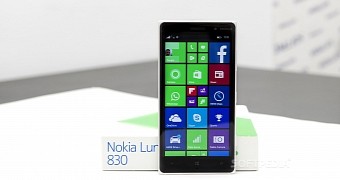Windows Phone is a failed project, there’s no doubt about that, and while Microsoft is reportedly working on a major overhaul behind the closed doors, others take the time to analyze what the company did wrong and how the platform ended up biting the dust.
One of them is Jean-Louis Gassée, former Apple executive turned analyst, who says in a recent editorial piece that Microsoft could have avoided the Windows Phone disaster, but it made the wrong calls just at the worst possible time.
While many blame Android for the death of Windows Phone, Gassee explains that it was Microsoft’s culture that one that shot the platform dead, pointing out that the company’s ambition to put the PC at the core of everything dramatically impacted the success of its mobile operating system.
“While Microsoft treated the emerging mobile devices as a sideshow, Google and Apple forged ahead with modern operating systems that ran circles around Windows Mobile, itself a Windows CE descendant,” he explains.
“It took Microsoft several hiccuping transitions hampered by backward compatibility trouble to move away from the outdated CE foundation. Windows Mobile became the modern Windows Phone in 2011 or 2012 (depending on whom you ask) but it was too late. Licensees didn’t line up at the Redmond door. The platform was already dying.”
The Nokia disaster
Gassée joined Nokia in 2010 as a company adviser, and one of the directions that he suggested for the Finnish phone manufacturer was to lay off the company’s CEO and replace Symbian with Android. Nokia picked a completely different strategy, hiring Stephen Elop as CEO and sticking with Windows Phone.
Elop eventually returned to Microsoft when the software giant took over Nokia’s Devices and Services unit, a move that in its turn led to a major decline of the Finnish manufacturer. Nokia eventually turned to Android, just like Gassée originally recommended, and is now struggling to recover with a series of smartphones powered by Google’s OS.
In the end, the former Apple exec says Windows Phone failed not because of a specific person, but because the company couldn’t step away from its PC focus, considering mobile phones just companion devices.
“For a long time, Microsoft’s orthodoxy placed the PC at the center of the world. When smartphones took center stage, the company’s propaganda censured talk of a Post-PC world. Smartphones and tablets were mere ‘companion devices,’” Gassee points out.
“We could point fingers at one or more Microsoft execs as the culprits, but that misses the point: Microsoft culture did it. Culture is dangerous; under our field of consciousness, it sneakily filters and shapes perceptions, it’s a system of permissions to emote, think, speak, and do. In the abstract, the Windows Phone failure was easily preventable. But Microsoft culture, made it unavoidable,” he said.
At this point, Microsoft is currently in damage control mode, with the company restructuring the mobile unit and reportedly working on a mobile overhaul that could be announced next year.

 14 DAY TRIAL //
14 DAY TRIAL //